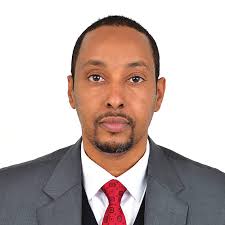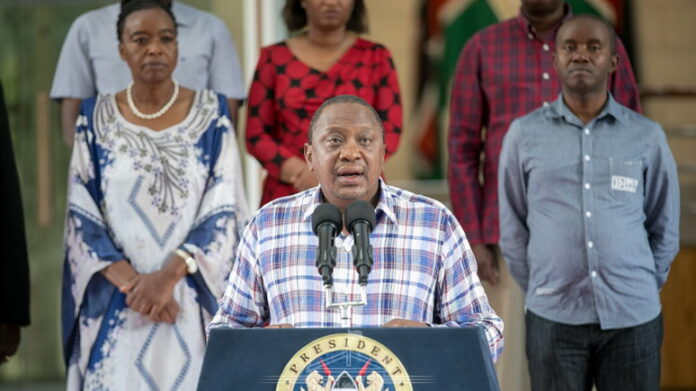Kenya COVID-19 Response: The World Health Organization (WHO) on 11th March 2020 declared COVID-19 a pandemic, pointing to the over 118,000 cases of the coronavirus illness in over 110 countries and territories around the world and the sustained risk of further global spread.
By the date of this article, 13th April 2020, there were 1,909,418 confirmed cases, 118,504 confirmed deaths affecting 213 countries, areas or territories . In Kenya, there are 208 confirmed cases and 9 confirmed deaths.
Different governments have had varied responses to COVID-19 pandemic to cushion their citizens and economies from the adverse effects of the pandemic. For example, USA has passed an estimated US$2.3 trillion (around 11% of GDP) Coronavirus Aid, Relief and Economy Security Act (“CARES Act”).
The Act includes US$250 billion to provide one-time tax rebates to individuals; US$250 billion to expand unemployment benefits; US$24 billion to provide a food safety net for the most vulnerable; US$510 billion to prevent corporate bankruptcy by providing loans, guarantees, and backstopping Federal Reserve 13(3) program; US359 billion in forgivable Small Business Administration loans and guarantees to help small businesses that retain workers; US$100 billion for hospitals, US$150 billion in transfers to state and local governments amongst other measures.

The United Kingdom tax and spending measures include: additional funding for the NHS, public services and charities (£5.7 billion); measures to support businesses (£27 billion), including property tax holidays, direct grants for small firms in the most-affected sectors, and compensation for sick pay leave; and strengthening the social safety net to support vulnerable people (by nearly £7 billion) by increasing payments under the Universal Credit scheme as well as expanding other benefits. Other than the mentioned fiscal policies, many other monetary and macro-financial measures have been instituted by USA, UK and many other countries.
The World Bank Group is prepared to deploy up to $160 billion over the next 15 months to support COVID-19 measures that will help countries respond to immediate health needs of the pandemic and bolster economic recovery. The IMF has already secured $1 trillion in lending capacity to all its members to respond fast to unprecedented emergency financing requests from over 90 countries.
Government of Kenya COVID-19 Intervention
His Excellency the President of the Republic of Kenya has issued several directives to contain the spread, effects and impact of COVID-19 pandemic in the country. Other than the health, public and social directives that have included closure of all educational institutions, stopping of international flights, social distancing directives, self-quarantine and compulsory quarantine measures for incoming passengers and suspected cases and testing of suspected and quarantined persons, there are other tax and economic measures which include;
- 100 % Tax Relief for persons earning gross monthly income of up to Ksh. 24,000;
- Reduction of Income Tax Rate (Pay As – You – Earn) from 30% to 25%;
- Reduction of Resident Income Tax (Corporation Tax) from 30% to 25%;
- Reduction of the turnover tax rate from the current 3% to 1% for all Micro, Small and Medium Enterprises (MSMEs);
- Appropriation of an additional 10 Billion to the elderly, orphans and other vulnerable members of our society through cash-transfers by the Ministry of Labour and Social Protection, to cushion them from the adverse economic effects of the COVID-19 pandemic;

COVID-19 Emergency Respond Fund
Public Finance Management (COVID-19 Emergency response fund) Regulations, 2020 are to be tabled in parliament. The object and purpose of the COVID-19 Emergency response fund shall be to mobilize resources for emergency response towards containing the spread, effect and impact of COVID-19 pandemic.
The fund will consist of monies appropriated by the National Assembly, voluntary contributions from public officers and private persons, grants, donations, subscriptions, bequests or other gifts made to the Fund and monies from any other source approved by the Cabinet Secretary. The fund will be run by a board already appointed and gazetted by the president.
Kenyans expect that the fund will be run in a manner that will immediately impact the people and accountability upheld as required by law. Kenyans also expect parliament to play its role in monitoring the application of the resources of the fund and holding the board accountable for use of the fund resources as laid out in the regulations. Kenyans will not tolerate any misappropriation of funds especially at a time of crisis like this.
Social Assistance Fund
Whereas the above-mentioned fund is critical at this time, it’s important to recall another fund whose regulations were published in 2019. The Public Finance Management (Social Assistance Fund) Regulations, 2019 set up a fund to be administered by an independent Social Assistance Fund Oversight Board.
The objects and purpose of the Fund is to provide funding for the provision of social assistance for poor and vulnerable persons. The Regulations define a person in need to include poor orphans and vulnerable children; poor elderly persons; poor persons with disability; persons in extreme poverty; and any other person as may be recommended by the Board to the Cabinet Secretary for the time being responsible for matters relating to social assistance, and published by a way of Notice in the Gazette. The initial capital of the Fund was to be Kshs 2 Billion. appropriated by Parliament in the financial year 2019/2020.
SMEs response to COVID-19 crisis in Kenya
The use of the Social Assistance Fund would have had a better impact during this time of the pandemic. It’s the people for whom that fund was designed that are currently bearing the brunt of the pandemic and require urgent intervention measures by the government. Perhaps, more effort should have been given to this fund before the formation of another fund and avoid duplication of efforts.
What then is the expectation of Kenyans from the government during this period of the pandemic?
What social intervention measures can be instituted with urgency to cushion the vulnerable from suffering during this critical period? I would like to believe that the government has enough data about the section of the population that requires to be targeted for food distribution, water and other non-food items.
In Kenya, usually NGOs and other community organisations interact with Kenyans,offer immediate direct intervention. During this crisis, several organisations have provided food and sanitation to the affected people both in the slums and rural Kenya.
The government recently banned the uncoordinated distribution of food and non-food items to communities in Kenya because of the risk of injury resulting from chaos as witnessed in Kibra and the resultant exposure to the spread of the virus. The need for government to take up the role of those organisations immediately cannot be overemphasised.
Kenyan families are affected by lack of income resulting from unemployment and the closure of informal sector that usually feeds them. Bureaucracy must be put aside at this time and quickly distribute food and water to these poor Kenyans in the slums and the rural settings. The government has the machinery to conduct organised and safe large-scale food distribution to the poor. This is the single most priority of the government in the short term, together with the efforts in the health ministry to combat the virus.
With Coronavirus Pandemic, Landlord Demands Rent By Unroofing Tenants House
Other urgent measures should also be targeted to businesses especially the MSMEs. Interest free loans and facilities that can be easily accessed by MSMEs either directly from the government or through other players in the financial sector is critical. This will provide the much-needed liquidity to pay employees and stay alive as a business.
The challenge will be identification of legitimate beneficiaries of such facilities, but some basic criteria can be used like registration documents, tax registration, council licenses etc. If the informal sector does not fit into these and other metrics, then other means of assisting them must be found.
The immediate suspension of payment of taxes, for a period of three months, for all individuals and businesses that are directly affected by the pandemic is also another measure. Businesses and individuals affected can be required to notify KRA electronically for such an application and all applications received be accepted by KRA.
Whereas revenue collection will be affected, this measure could save businesses from collapse during this pandemic. Pre-existing debt repayment plans to KRA should also be shelved for a period of three months. All monthly tax returns filing by individuals and companies should also be suspended for three months and the deadline for annual tax returns be pushed from 30th June to 30th September.
Many banks and financial institutions have reached out to their clients requesting them to have a conversation regarding repayment of loans and other facilities. I believe the government should issue a blanket directive that waives repayment of principal and interest for all individuals and companies for three months. Other monthly expenditure like electricity bills, water and rent should also be suspended for directly affected individuals and businesses. However, where a business is not significantly affected, then they should pay their bills.
About the author

Abdi is a highly Experienced Auditor and professional consultant with unparalleled expertise in tax advisory, corporate finance, audit of corporate and government institutions, business strategy formulation and implementation. policy and governance, donor-funded agency compliance, SME support including review of business process, setting up systemic Structured and financial management training.
Abdi is an exemplary leader with an extensive track-record in leading dynamic across the region, delivering stellar results in number of complex projects undertaken.
He has over 20 years’ experience in the field of Audit, Tax, advisory and consultancy providing services to a wide range of clients in different industries and the region.
Abdi is a qualified accountant (FCCA) and a CPA (K). He a member of the association of Chartered Certified Accountants (ACCA), UK and is a practicing member of the Institute of Certified Public Accountants of Kenya (ICPAK).
Abdi is currently pursuing his PHD (Accounting) at the University of Nairobi and holds an MBA (Strategic Management) and a Bachelor of Commerce (Finance) from the same university.
Abdi is the Managing Partner of Umuro Wario and Associates.









Good welfare measure proposals. With a transparent and accountable disbursement infrastructure, these measures can prove effective. Great article!